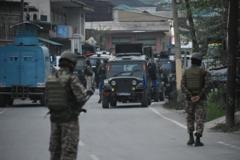The Pakistani government has reversed course on a policy requiring madrasas to register, capitulating to Islamist political parties. This decision, perceived as a political compromise, raises concerns over potential risks related to radicalization and the oversight of religious seminaries.
Pakistan’s Shift on Madrasa Registration: A Political Gamble with Long-Term Implications

Pakistan’s Shift on Madrasa Registration: A Political Gamble with Long-Term Implications
The Pakistani government retreats from mandatory madrasa registration, raising concerns over oversight and radicalization amid political maneuvering.
In Pakistan, an evolving landscape surrounding religious seminaries, known as madrasas, has surfaced as a significant political issue. These institutions, which promise free education, food, and housing to impoverished children, also pose concerns for the government and international officials about their potential role in extremist activities. Accusations against madrasas have included their connections to groups like the Taliban and Al Qaeda, raising alarms about radicalization.
This contentious issue gained momentum after the 2019 reform requiring madrasas to register with the Ministry of Education. This initiative aimed to enhance accountability for seminaries that have traditionally functioned under minimal state supervision and enjoyed backing from the Pakistan military. However, Islamist political factions opposed this requirement fervently.
Fast forward to October 2024, and after seemingly incessant political strife, the largest Islamist party, Jamiat Ulema-e-Islam, struck a deal with the government to abolish the registration mandate. The agreement allows madrasas to revert to their pre-2019 registration status under colonial legislation that does not impose strict oversight on their curriculums, funding, or activities, raising skepticism about the potential impact on their operational transparency.
In exchange for this concession, the Jamiat Ulema-e-Islam agreed to support controversial judicial appointment amendments that have heightened tensions within the political sphere. This agreement highlights a tactical maneuver within the government, where immediate political gains may overshadow long-term implications regarding oversight of madrasas and their potential role in perpetuating extremism in Pakistan.






















